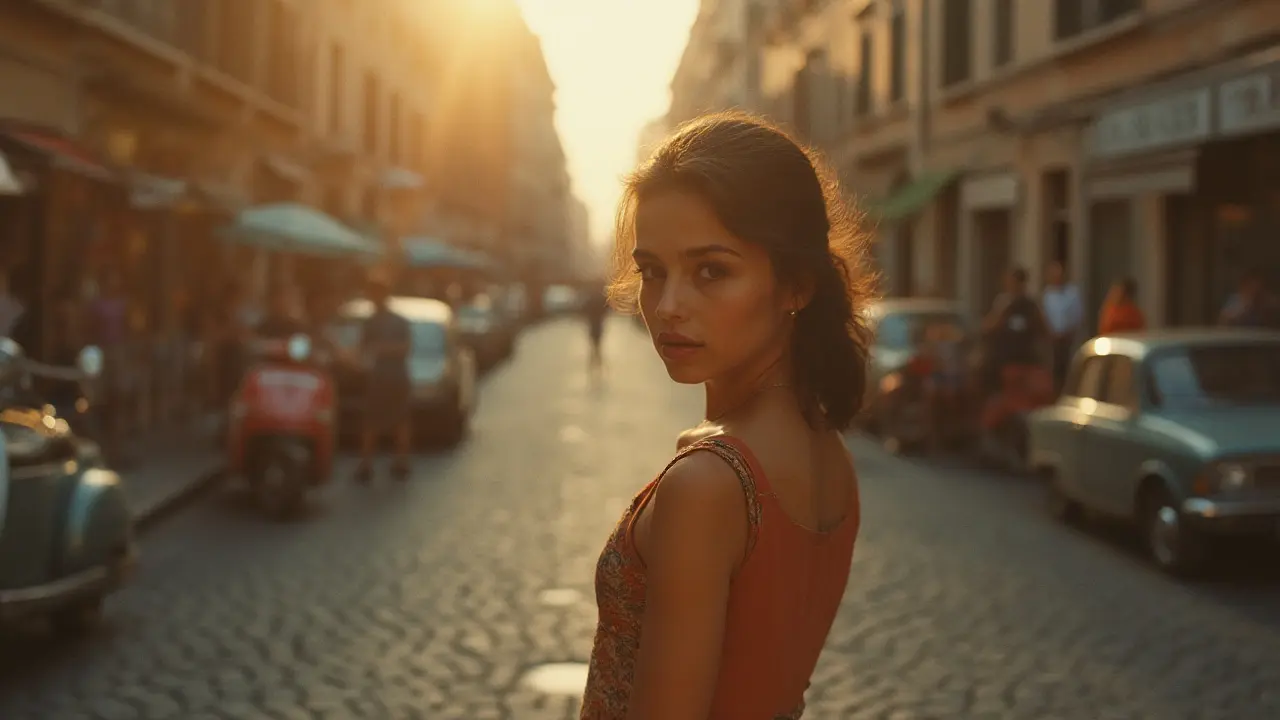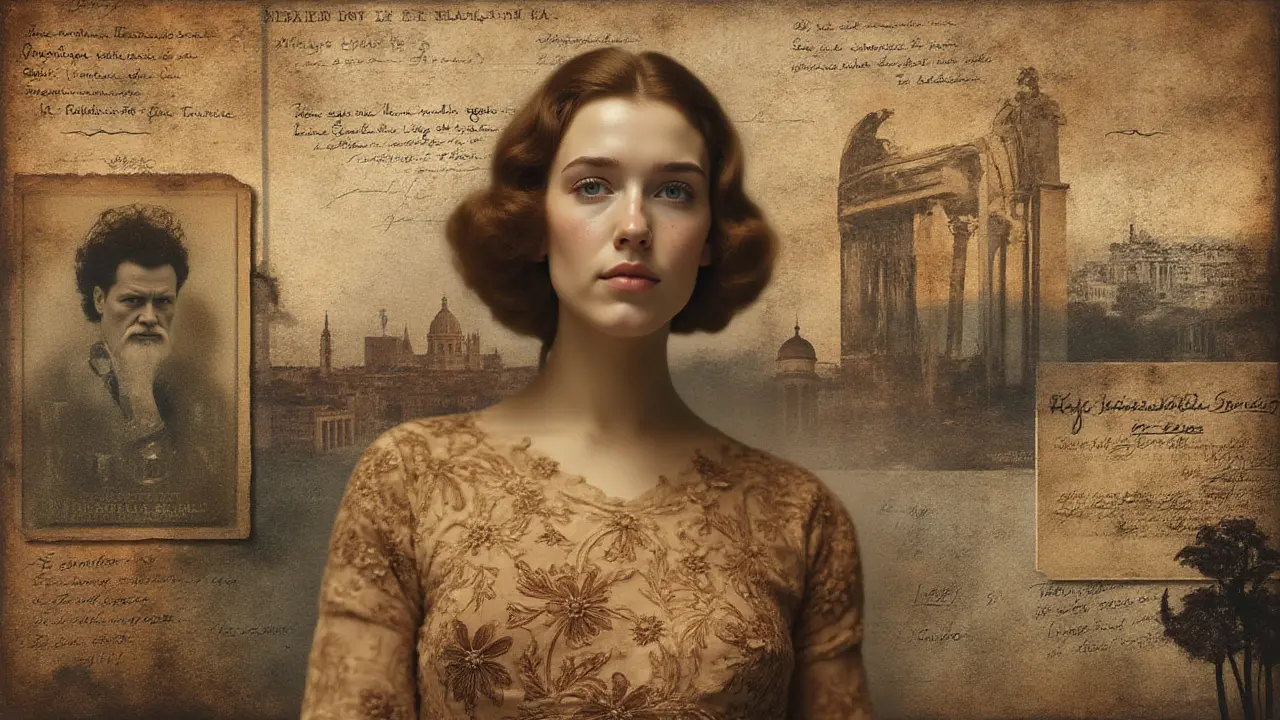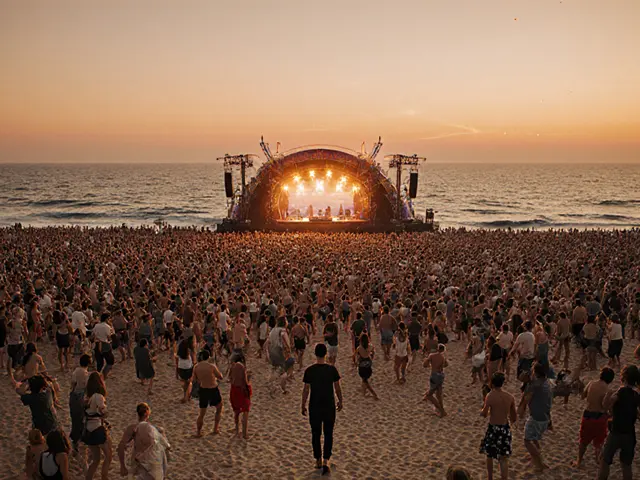
It’s easy to imagine big-name celebrities bursting onto the scene overnight, all lights, glitz, and magazine covers. But the truth for most stars? Their early days can be rough, unpredictable, and anything but glamorous. Malena Nazionale is the perfect example. If you’re picturing a smooth path from curious kid to national icon, better think again. Her journey in Rome was gritty, unpredictable, sometimes funny, sometimes tough—but always magnetic. When she first set foot in the eternal city, she wasn’t even sure if the film industry would take her seriously. Rome was filled with hopefuls, all with dreams just as stubborn as hers. Only a handful ever hear a ‘yes’.
Growing Up Fast: Malena's Life Before the Spotlight
Before fame, Malena was just another Roman teenager hustling to pay the bills. Born in the outskirts of Rome in 1983, her childhood sparkled with more attitude than luxury. Her parents worked long shifts—her mother as a hospital aide, her father as a mechanic. No silver spoons, no famous uncles to smooth her way. Malena’s grit came from watching her parents put in long hours to keep things afloat. She says her mother’s advice—"work until people have no choice but to notice your effort”—was something she kept close during her toughest moments.
School wasn’t really her scene. She never liked to sit still. By age fifteen, Malena started picking up odd jobs—waiting tables, setting up for local events, even selling tickets outside Rome’s buzzing sports arenas. Her attraction to the world of acting was fueled less by lofty dreams and more by Rome’s pulse. Take a bus through any Roman neighborhood and you’ll soak up the local energy: loud debates, dramatic hand gestures, fierce loyalties. She loved it. Watching street performers, seeing small local productions at community theaters—those sparked her first real performances (sometimes just imitating her neighbors at family parties).
Malena’s first formal taste in front of a crowd came when she joined a local acting class at 17. The school was barely more than a cramped room above a bakery, the sort where you could hear the dough being kneaded below. There were no big productions, just small scenes, but she threw herself into every audition. At 18, she landed a background role in a glossy TV ad for a cola brand. Her pay? Enough for groceries that week. As she said in a 2015 interview, “I didn’t want to be famous. I just wanted to be seen.”
Here’s a quick look at her early jobs before acting took off:
- Waitressing at Trastevere cafes
- Handing out flyers for street musicians
- Assisting photographers during weekend weddings
- Working as a movie extra in crowd scenes
Nothing about it looked glitzy, but each experience taught her a bit more about human behavior. She watched people, studied faces, learned what made someone interesting—or instantly forgettable. All lessons she’d pull from later on.
Breaking Into the Industry: Chance, Hustle, and a Little Luck
Ask anyone in Italian cinema and they’ll tell you: Rome is where the action is, but breaking into film is like pushing through a packed subway—sweaty, messy, and sometimes hostile. Malena hit her first auditions with the nerve of someone who’d already been told "no" too many times to care. In fact, she recalled in a 2018 panel how a casting director told her, “You’ve got guts but not enough polish.” That dig stung. Instead of backing down, she sharpened up, studying famous Roman actors, mimicking the delivery of Monica Vitti and Sophia Loren in front of her mirror until the lines felt like her own.
The real turning point came when she snagged a small part in a low-budget indie—"Notte a Testaccio" (2002). The film barely made a blip at the box office, but her raw presence caught the eye of director Gabriele Moretti. He saw something in her—a mix of streetwise realism and vulnerability. He later told an interviewer, “You can’t buy that. That’s something only Rome can give you.” Moretti cast her in a bigger supporting role in his next feature, which entered the circuit of the Rome Film Fest. The critics noticed. Suddenly the industry couldn’t ignore Malena anymore.
The thing about Rome’s movie world: word of mouth is everything. If one director likes you, others get curious. Malena started landing meetings for small TV dramas and indie productions, learning every corner of the city’s film scene. She’d often show up to casting calls in the same jeans she wore to wait tables the night before. No stylists, no handlers. Just pure hustle.
Here’s a simple data snapshot of Malena’s early filmography, showing how slowly and steadily her career picked up:
| Year | Project | Role | Impact |
|---|---|---|---|
| 2001 | Commercial (soft drink) | Teenager (background) | First screen role |
| 2002 | Notte a Testaccio | Friend #3 | First movie credit |
| 2003 | Bella di Sera | Supporting character | Positive reviews |
| 2004 | Gente Comune (TV series) | Recurring guest | More recognition |
| 2005 | Strade di Cuore | Lead role | Breakout performance |
Notice the slow progress. It wasn’t one big movie or viral moment. Just a steady climb, year by year, role by role.

Roman Roots: The City’s Mark on Malena’s Craft
Living and working in Rome shaped Malena’s acting in ways you can’t fake. The city itself is a buzzing character in her life. Swapping stories in neighborhood trattorias, listening to taxi drivers tell wild tales, or sitting in the shadow of Colosseum—it all sinks into your skin and seeps into how you see the world. For Malena, those daily Roman lessons translated right to screen. You’ll notice in her performances a directness and sense of humor that radiate Roman culture. There’s a scene in one of her early films where she turns a simple espresso order into a bit of theater—rolling her eyes, tossing off a sly comment, winning over everyone at the bar. That’s not just acting; that’s how real Romans carry themselves.
One director, Lucia Ventresca, explained, “If you want an actor who can walk into a scene like she owns the street, you pick someone from Rome.” Malena’s energy isn’t loud for the sake of loud—it’s rooted in confidence picked up from watching people wrestle with daily life. It’s also about adaptability. Streets close, protests pop up out of nowhere, plans shift with the weather, and people have to adjust fast. Malena carried that same adaptability onto every set. Need to shoot a scene in a crowded public square? She’s unfazed. Caught off guard by an unexpected question on a press tour? She throws a joke right back.
Critics started to call her “the Roman chameleon.” Whether she was playing a shy waitress, an outspoken street artist, or a complicated villain, she gave each character a piece of local color. She refused to lose her accent or smooth away her edges for wider appeal. That authenticity became her trademark. When she finally broke into big-budget films, directors leaned into her Roman style rather than trying to erase it. The gamble paid off—audiences in Rome embraced her, but viewers from Naples to Milan could feel the realness, too.
For anyone curious about how Roman energy fuels creativity, take these tips from Malena’s story:
- Soak up your local scene: Eat, talk, walk, and notice every detail. Inspiration is everywhere.
- Don’t hide your quirks: The things that make you different are pure gold in storytelling.
- Stay tough but flexible: Rome isn’t gentle with anyone, but quick thinking can turn setbacks into stories worth telling.
- Network by being real: People connect with honesty more than perfection.
Malena’s career proves that roots matter. Lean into them rather than hide. Her climb up the ladder of Italian cinema is a lesson in owning what makes you, you.
Lessons for Dreamers: What Malena’s Start Means for Others
It’s tempting to look at a star and imagine they’ve always had it made. Malena Nazionale’s early story torches that myth. For anyone out there eyeing a career in film—or any creative field—the lessons from her Roman beginnings are solid, real, and totally relevant today. First off, persistence isn’t optional. Malena’s early years were packed with tiny roles that barely paid, random gigs to make ends meet, and long stretches of getting ignored. Plenty of people around her quit. She just kept showing up. That's really the whole trick: stubborn consistency.
Then there’s the constant learning. Malena didn’t just wait for good roles to find her. She studied, took the little gigs she could, and gathered every skill from each part of the process—whether it was from an acting teacher or a bartender joke. Imagine her on set, picking up lighting tricks from crew members, chatting up extras, soaking in anything that could help. By the time the bigger roles came calling, she wasn’t just talented—she was grounded.
Here’s a secret: nobody in the film world does it totally alone. Malena’s network was built on small, real relationships. Chatting with directors after failed auditions, swapping snacks with grips, sharing rides home with other struggling actors—these moments added up to trust and recommendations later. Even when she felt out of place, she leaned on the friends she made along the way.
Three things you can steal from Malena’s playbook, no matter what your field:
- Show up, even when it feels pointless. Somebody is always watching, even if you don’t realize it yet.
- Learn from everyone, not just from the people at the top. Crew members, neighbors, distant cousins—a good tip can come from the most random places.
- Don’t fake it. Bringing your local background, personality, and quirks to your work will set you apart in a sea of carbon copies.
Rome built Malena’s stamina, authenticity, and voice. She’s never stopped crediting those early, rocky years for giving her the edge. She’s proof that the Malena Nazionale story is really about thousands of small choices, determined hustle, and the magic of roots that run deep through the winding streets of Rome. So the next time you see a big star on a poster, remember that once upon a time, they were just trying to buy groceries after a nervous audition, hoping someone might call back. Sometimes, the city you start in leaves the deepest mark of all.



